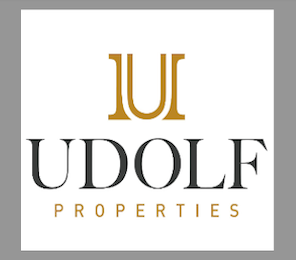Over the past 25 years, the Maurice Greenberg Center for Judaic Studies at the University of Hartford has distinguished itself as one of the “crown jewels” of the university, establishing itself as an international center of world-class Judaic studies scholarship serving the Greater Hartford community, while cultivating a distinctive program of study for undergraduates interested in taking courses from the wide range of topics offered at the center. This is the first in a series of articles that will appear in the Ledger over the course of the coming year detailing the history of the Greenberg Center, its contributions to students at the University of Hartford and to the greater Hartford community at large.
A Brief History of Jewish Studies
The academic discipline of Jewish studies – an interdisciplinary field that combines the fields of history, religion, literature, archaeology, politics, sociology, and more – first came into existence at the beginning of the 19th century in Germany as a movement of young scholars who sought to employ scientific methods to examine the origins of Jewish traditions (Wissenschaft des Judentums). One of the primary goals of the Wissenschaft group was to have Jewish studies introduced as a respectable area of study in European universities. In the United States, Jewish Studies expanded as a discipline in the 20th century, with the first department of Judaic Studies created at Harvard University in 1925, and the first endowed chair in Jewish History created at Columbia University in 1930, with the appointment of Salo Wittmayer Baron as Nathan J. Miller Professor of Jewish History, Literature and Institutions. It was not until the last quarter of the 20th century, however, that departments of Jewish Studies began to expand across American colleges and universities, just at the time the Maurice Greenberg Center for Judaic Studies came into existence at the University of Hartford.
Origins of the Maurice Greenberg Center for Judaic Studies
Arnold Greenberg, the president of Coleco Industries, founded the Maurice Greenberg Center for Judaic Studies on April 10, 1985 through a $1 million endowment to honor the memory and legacy of his father, who had founded Hartford’s Connecticut Leather Company during the 1930s. Upon the founding of the center, Greenberg remarked upon the significance of establishing the field of Judaic Studies at the university and in the community, “I feel so very fortunate to be able to make this gift to the University of Hartford – and by so doing, memorialize my late and beloved father, help the university and its developing curriculum, add to the growth of Jewish studies as a field of scholarship and provide a stimulating intellectual resource for both Jews and non-Jews of the Greater Hartford community.” As Greenberg observed at the time, the establishment of the Greenberg Center at the University of Hartford was indeed part of the “maturation” of the field of Jewish studies at American colleges and universities, a development that paralleled the spread of departments of Jewish studies around the country during the 1980s. A distinguishing feature of the Greenberg Center’s mission since its founding, however, was the commitment of Greenberg and the Center to the community at large, making the University of Hartford a pioneer in efforts to expand scholarship beyond the bounds of the “ivory tower” and establishing the Greenberg Center as “the place where the community comes to learn.” Stephen Joel Trachtenberg, president of the University of Hartford from 1977 to 1988 (subsequently president of George Washington University from 1988-2007), played a central role in helping to establish the Greenberg Center at the University of Hartford and set a precedent for other Jewish presidents of American universities to engage in open advocacy of the development of the field of Judaic studies. At the time of its founding, Trachtenberg pointed to the critical task of the newly created Center’s Board of Visitors (first chaired by Hank Lebed) in determining how the inaugural Greenberg Chair in Judaic Studies at the university would “be fitted into the framework of Greater Hartford – the community definition of Jewish studies at the University of Hartford, over and above their scholarly definition.” To coincide with the establishment of the Center, the University also bestowed an honorary doctorate on Elie Wiesel in May 1985.
From its inception, even before developing its scholarly offerings, the Center, under the dedicated leadership and initiative of acting director Arlene M. Neiditz, committed itself to public, scholarly lectures and symposia for the Greater Hartford community. Neiditz helped to organize a series of public lectures in the 1984-85 academic year, including programs with the Israeli poet T. Carmi, the first annual Yiddish film, sponsored by Irving and Fran Waltman, and a series of lectures to coincide with an exhibition at the Wadsworth Atheneum co-sponsored by the Greenberg Center, “The Precious Legacy: Judaic Treasures from the Czechoslovak State Collection” from June 3 through July 29, 1985. First seen in November 1983 at the Smithsonian Institution in Washington, this exhibition showcased treasures and objects from the lives of Czech Jewry from the Middle Ages to World War II and drew record-breaking crowds at museums throughout the United States before its final showing at the Atheneum. More than 350 objects, drawn from one of the world’s most significant collections of Judaica, were included in the show, which celebrated the beauty and vitality of Jewish culture in Czechoslovakia. As Neiditz later recalled, she took special pleasure in watching the Greenberg Center come into existence, being part of creating “something from nothing.”
In 1986, the university appointed Jonathan Rosenbaum, a scholar of the ancient Near East and Biblical Studies with a Ph.D. from Harvard University and rabbinical ordination from Hebrew Union College-Jewish Institute of Religion, as the inaugural Maurice Greenberg Professor of Judaic Studies and first director of the Greenberg Center. Under the leadership of Professor Rosenbaum, the Greenberg Center would expand its scholarly reputation both locally and internationally, developing three possible undergraduate majors in Judaic Studies, a full range of community programs, including the Henry Luce Forum in Abrahamic Religions, a national program jointly devoted to advancing scholarship concerning and mutual understanding among American Jews, Christians, and Muslims. In the first decade, Rosenbaum was also a pivotal figure in developing regional awards in Holocaust education to recognize teachers in diverse schools from throughout New England and establishing annual lectures on topics ranging from Yiddish and Hebrew language and culture, Cantorial music, and the broad scope of Jewish history. From these beginnings, the Greenberg Center has expanded and flourished over the past 25 years with the arrival of the second director of the Greenberg Center and Maurice Greenberg Professor of Judaic Studies, Richard Freund, in 1998 and Philip D. Feltman Professor of Modern Jewish History, Avinoam Patt, in 2007.
Over the next several months, this series will offer highlights from the past 25 years of the Greenberg Center, detailing the development of the Center’s academic programs, annual workshops for local educators in Holocaust, Middle East, and early childhood and elementary Jewish education, museum exhibitions in the Singer Gallery of the Sherman Museum of Jewish Civilization, the history of one of the most prestigious awards in the field of American Jewish fiction (the Edward Lewis Wallant Award, established by the Waltman Family in 1963), the list of remarkable guest speakers who have come to speak at the University and in the community, and of course the annual trips to Israel with Richard Freund and the Bethsaida Excavations Project. Stay tuned as we highlight the last twenty-five years and look forward to the next quarter century!
The 25th anniversary celebrations will continue with a special Gala Banquet honoring the founders of the Greenberg Center, Arnold and Beverly Greenberg, on Sunday, September 25, 2011.
Dr. Avi Patt is a professor of History at the Maurice Greenberg Center for Judaic Studies at the University of Hartford.








 Southern New England Jewish Ledger
Southern New England Jewish Ledger









